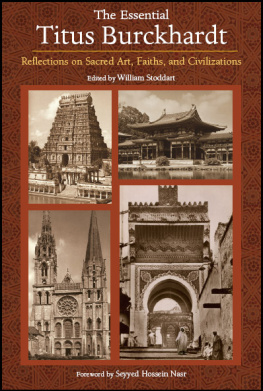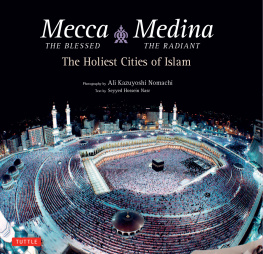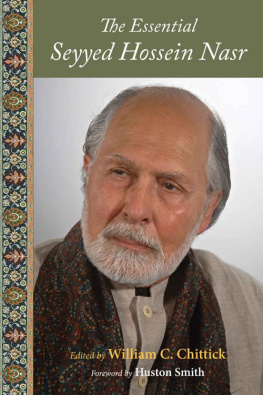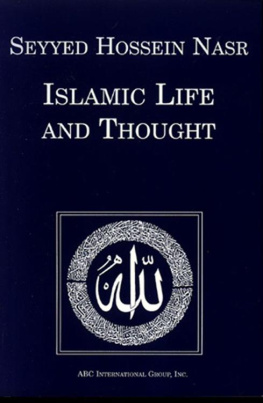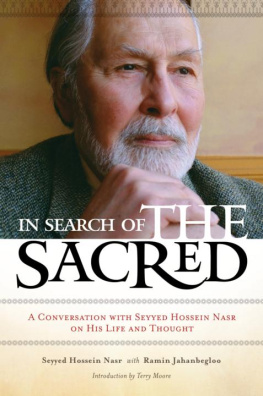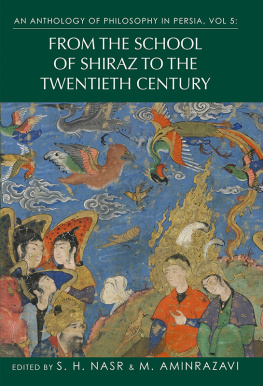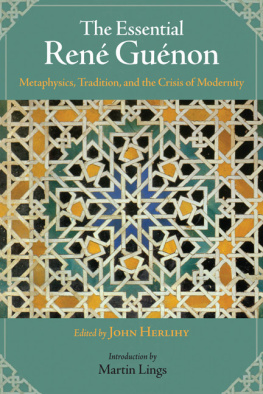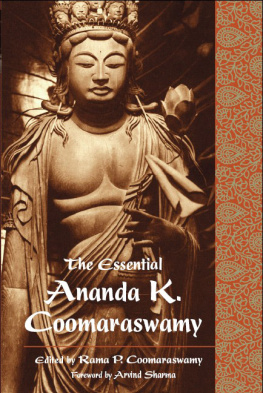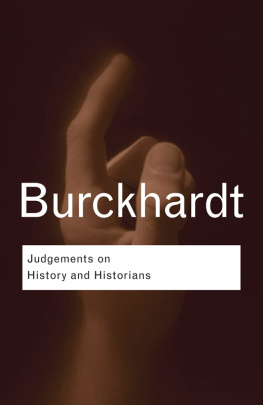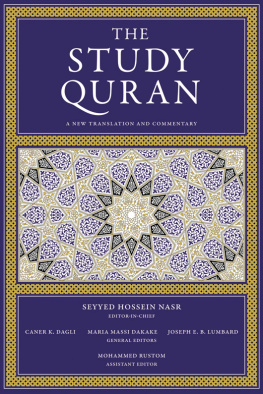About the Author and this Book
One finds new insights on every page, and what is more, finds that these become more profound with each reading.
Arthur Versluis, University of Michigan
One of the leading authorities of the Perennialist School, Titus Burckhardt brought a unique combination of gifts to the exposition of the worlds great wisdom traditions. Burckhardt was at home in a variety of religious worlds and able to speak with authority on many wide-ranging subjects. His eloquently written and beautifully crafted books are an enduring treasure.
James Cutsinger, University of South Carolina, author of Paths to the Heart: Sufism and the Christian East
Two words spring to mind on reading The Essential Titus Burckhardt : awe and gratitude. Awe because of the extraordinary perception and beauty of his writingfrom his masterly analysis of Christian art and his profound and penetrating understanding of the Renaissance, to short pieces such as The Wooden Chest or Bathing in the Ganges in which he opens our eyes to the language of sacred symbolism as no other author has succeeded in doing. And gratitude, such tremendous gratitude that we now have at our disposal writings of such caliber to guide us through not just sacred and traditional art but through so much else besides (for example, evolution and modern psychology). With the sharp sword of Truth he sees through the illusions of modern art as few other writers have done, as well as giving us such beautiful poetic writing as in, to give one of many examples, his book on Fez.
As a teacher of the principles of traditional art this book will be my primary sourcebook! It is a treasure and should be on the shelves of every teacher of art and every art student today.
Emma Clark, author of Underneath Which Rivers Flow: The Symbolism of the Islamic Garden
Mr. Burckhardt has attended our Indian ceremonies, including the Sun Dance, and he has learned our legends and our sacred ways around the campfires. He knows and understands the spirit of the olden-day Indians.
Thomas Yellowtail, Crow Sun Dance Chief
As a writer and thinker on a wide range of topics integral to the sacred traditions, Titus Burckhardt has an unerring ability to reach to the essential truths and to speak persuasively of their relevance and importance to the contemporary mind.
Brian Keeble, author of Art: For Whom and For What?
Ren Gunon remarked that it is frequently easier to understand first principles than the countless intermediate degrees which lie between mankinds ultimate metaphysical Goal and our present existential awareness. Otherwise stated, cosmology can be and often is more complex than metaphysic. Nevertheless, it is in the nature of human intelligence to seek a unified and comprehensive world-view in which to situate oneself, take ones bearing, and follow a saving orientation. Titus Burckhardt, lifelong friend of Frithjof Schuon, certainly did not neglect metaphysic but his predilection was cosmology. The great merit of The Essential Titus Burckhardt is that it provides lucid and salutary insights into many cosmological enigmas and into moot questions of human nature which is so intimately related to cosmology. In addition, the reader will find in this book unequivocal refutations of many of the false notions intrinsic to modernity. William Stoddart, the anthologist, has made excellent choices from the extensive Burckhardt oeuvre, and the book is highly recommended for anyone who does or would like to take seriously the human vocation to transcend oneself.
Alvin Moore, Jr., editor of Selected Letters of Ananda K. Coomaraswamy
Titus Burckhardt has always been a primary inspiration to me. I had the privilege of meeting him in London in the 1970s, with S. H. Nasr. His bearing, modesty and natural reticence hid his great stature as an artist, scholar, and man of wisdom. I recommend this book to all today.
Keith Critchlow, author of Islamic Patterns: An Analytical and Cosmological Approach
Titus Burckhardt was one of the most authoritative exponents of the Perennialist school. His work was centrally concerned with the interrelationships of Truth, Beauty and Goodness, with the principles informing traditional arts and sciences, and with the nexus between intellectuality and spirituality. This marvelous compilation of some of his most arresting and significant work will command the attention of anyone seriously interested in the ways of the spirit.
Kenneth Oldmeadow, La Trobe University, Bendigo, author of Traditionalism: Religion in the Light of the Perennial Philosophy
Burckhardts thought is clear and soberly articulated, his argumentation intuitive and profound.
Victor Danner, Indiana University
The writings of Titus Burckhardt convey in a uniquely faithful and transparent way the truths by which he himself lived, which sustained him and which fashioned all aspects of his existence. The total sincerity and clarity of exposition of the author cannot but attract the reader to That Itself from which these truths radiate. No doubt this was what Titus Burckhardt had wished whenever he took his pen and wrote.
Jean-Claude Petitpierre, colleague of Titus Burckhardt
For anyone who has dreamt that art and architecture is more than a fancy play of aesthetics, Burckhardts essays set the stage for the fiat lux of the soul before the miracle of revelational art. To read him is to see form transfigured into sacred intelligence.
Mark Perry, author of On Awakening & Remembering
He devoted all his life to the study and exposition of the different aspects of Wisdom and Tradition. In the age of modern science and technocracy, Titus Burckhardt was one of the most remarkable exponents of universal truth.
William Stoddart, the Editor
Biographical Notes
About William Stoddart
William Stoddart was born in Carstairs, Scotland, lived most of his life in London, England, and now lives in Windsor, Ontario. He studied modern languages, and later medicine, at the universities of Glasgow, Edinburgh, and Dublin. He was a close associate of both Titus Burckhardt and Frithjof Schuon during the lives of these leading Traditionalists/Perennialists. His books include Outline of Hinduism (1993), Outline of Buddhism (1998), and Sufism: the Mystical Doctrines and Methods of Islam (1986). Stoddart contributed the chapter Mysticism to the volume The Unanimous Tradition (1998), edited by Ranjit Fernando, and the introductory essay Meaning Behind the Absurd to In Quest of the Sacred (1994), edited by S.H. Nasr and Katherine OBrien. He is also the translator of several of the books of Titus Burckhardt and Frithjof Schuon. For many years Dr. Stoddart was assistant editor of the British journal Studies in Comparative Religion . Pursuing his interests in comparative religion, he has traveled widely in Europe, North Africa, India, and Ceylon.
About Seyyed Hossein Nasr
Seyyed Hossein Nasr was born in Iran and was educated there and at M.I.T. and Harvard in America. He currently is University Professor of Islamic Studies at the George Washington University in Washington D.C. Professor Nasr is one of the most important and foremost scholars of Islamic, Religious and Comparative Studies in the world today, and is a well known and highly respected intellectual figure both in the West and the Islamic world. He has written over fifty books and five hundred articles which have been translated into several major Islamic, European and Asian languages. He was close to both Titus Burckhardt and Frithjof Schuon, personally and intellectually, and is now one of the most active and influential Traditionalist/Perennialist writers. Professor Nasr is also the president of the Foundation for Traditional Studies, which publishes the journal Sophia .

